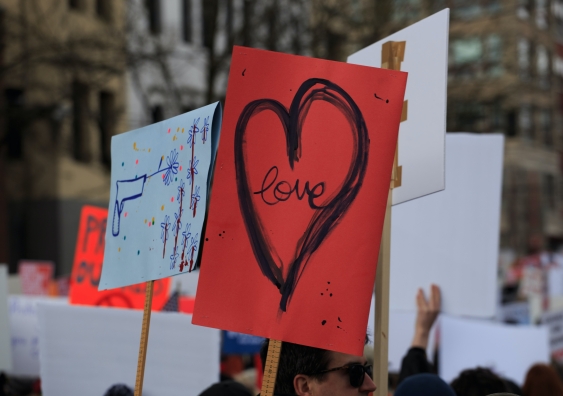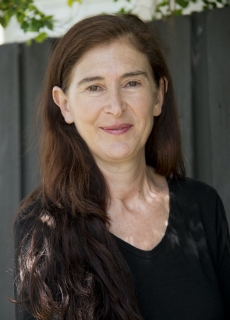How can we create a more just world?
Filmmaker and cultural philosopher Mary Zournazi will join former Archbishop of Canterbury Rowan Williams for a UNSW Centre for Ideas discussion on justice and love.
Filmmaker and cultural philosopher Mary Zournazi will join former Archbishop of Canterbury Rowan Williams for a UNSW Centre for Ideas discussion on justice and love.

With terrorist attacks, the Syrian Civil War, the European Migrant Crisis, Brexit and the US presidential elections, our relationships to each other in have been tested in recent times. But while desperate situations can make us divisive and breed violence and atrocity, it doesn’t have to be that way.
By looking at different religious and philosophical traditions, UNSW Arts, Design & Architecture Associate Professor Mary Zournazi says we can experience the world in a different, more just, way, through love. The filmmaker and cultural philosopher from the School of Social Sciences says doing so can help us better respond ethically in crisis times.
“It’s broadening out what love means, because we have a very limited sense of it,” says A/Prof. Zournazi.
“It’s recognising that we’re not just individuals; we live with others all the time and others shape us. We have to find ways of addressing that through kindness and sensitivity – words that are often seen as weak, but they can be the most powerful.”
A/Prof. Zournazi is co-author of the book Justice and Love: A Philosophical Dialogue, and will join fellow co-author former Archbishop of Canterbury Rowan Williams for a discussion Justice & Love at an upcoming UNSW Centre for Ideas event on February 16 chaired by ABC journalist Andrew West.
“Rowan is such an amazing person and inspiration. He’s an incredible thinker, and it’s been just such a wonderful gift to be able to be in conversation with somebody like him who is so extraordinary,” A/Prof. Zournazi says.
The discussion, which will be live-streamed, explores how we can think about justice beyond the law, and our relationships and responsibilities to each other in everyday life.

A/Prof. Mary Zournazi. Photo: Effy Alexakis.
“While there’s a necessity for the law of course, but often the law doesn’t deal with the root of people’s grievances and sorrow,” A/Prof. Zournazi says.
“We really need to understand how to live in our communities, and how to deal with those differences in a just and responsible way that recognises people’s suffering and pain. In a way that doesn’t dismiss people’s anger, but listens to and addresses the actual injustices.”
A/Prof Zournazi says enriching the language around justice can better help us understand it in relating to others’ experiences.
“I’ve been interested as a filmmaker, as a sociologist and philosopher, in how we can in some ways reclaim, things like love, charity, compassion, all these kinds of religious words which, in a way, in a secular society we no longer know how to use them.
“We perhaps need to look and reclaim the wonderful wisdom of these words in an everyday and political sense so that we can give meaning back to them,” she says.
A/Prof. Zournazi hopes that the audience will continue the conversation following the event.
“In a way, we’re just starting the conversation. I hope that people can engage seriously with what we’re trying to put forward more as a question.
“Because what we need right now is not more answers, but more questions. That is the importance of conversation and dialogue in our public worlds and our cultural worlds and our political worlds,” she says.
The UNSW Centre for Ideas discussion is also the first flagship event for the new Faculty of Arts, Design & Architecture.
“The book and the discussion are foundational to how we should see education in the sense that we should be able to take humanities – arts, design, architecture – all of these things seriously as a means to understand community,” A/Prof. Zournazi says.
“Without them, there is a great loss to human communication and loss of human well-being. The book [and discussion] is an emblem of the necessity of arts and humanities and interdisciplinary creativity.”
What: LIVESTREAM Justice & Love
When: 16 February 2021, 6:30 PM – 7:30 PM
Register for the UNSW Centre for Ideas event